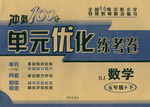题目内容
【题目】 If you were on the street in Mexico today you might think you were in an operating room, surrounded by doctors. You could see many concerned people with masks (口罩) trying their best to stop the swine flu (猪流感). And the masks aren’t only being used in Mexico. A friend of mine traveling from New York City to Florida was given a mask and a pair of gloves just after he reached the airport. And another friend went to get a haircut only to be faced with a hairdresser wearing a mask!
But do the masks really work? Is covering your nose and mouth the key to stopping the swine flu? To find out the truth, ABC’s reporter Sharyn Alfonsi talked with germ (细菌) expert Dr. Elaine Larsen. It turns out that when you sneeze (打喷嚏) the air coming out of your mouth at a speed of one hundred miles per hour carries germs which can travel anywhere around you and make people around you infected (被感染).
However, whether you become infected actually depends on the weather. As Sharyn reported, when you sneeze, the germs leave your body in small drops of water coming out of your mouth. If the weather is wet, the wet air will make the small drops bigger and heavier and they drop down towards our feet. If this happens, we won’t become infected. But if the air is dry, those small drops can float higher up, making it possible for them to touch someone else’s nose, mouth or their mask.
Larsen says the masks can stop the germs well but after a few hours, they start to get wet, holding a lot of germs they come across and causing you to breathe them in. The masks do work, but the key to stopping the germs is changing your masks often.
【1】According to Para.1, in Mexico you can see that ____.
A.the patients are treated in the open air
B.some doctors work in the street
C.people speak little to each other in the street
D.many people wear masks in the street
【2】According to the passage a patient spreads germs mainly through ____.
A.breathingB.Speaking
C.touching othersD.sneezing
【3】We learn from the passage that on a wet day ____.
A.sick people will be infectedB.germs can spread very far
C.germs spread very quicklyD.few people will be infected
【4】If you keep wearing a mask for a long time, ____.
A.the mask will be old and worn outB.you’ll love the feeling of wearing it
C.germs will be kept away from youD.it will be easy for you to be infected
【5】What should we pay attention to when wearing masks?
A.Keeping the masks dry.B.Changing the masks often.
C.Choosing very thick masks.D.Wearing big masks.
【答案】
【1】D
【2】D
【3】D
【4】D
【5】B
【解析】
这是一篇说明文。墨西哥的街道就像手术室,到处是戴口罩的人。戴口罩真的能阻挡猪流感吗?答案是肯定的。但如果一个口罩戴得太久,上面附着的细菌就会变得很多,很容易被吸入体内。所以一定要经常更换口罩。
【1】
细节理解题。根据第一段“If you were on the street in Mexico today you might think you were in an operating room,surrounded by doctors.”可知如果你现在在墨西哥街上,你可能会觉得你在手术室里,被医生包围,所以在墨西哥街头人们都戴口罩,故选D。
【2】
细节理解题。根据第二段“It turns out that when you sneeze the air coming out of your mouth at a speed of one hundred miles per hour carries germs which can travel anywhere around you and make people around you infected.”可知当你打喷嚏的时候,从你嘴里以每小时一百英里的速度飞出来的空气,携带的病菌可以到达你周围的任何地方并致使周围的人感染,所以病菌是通过打喷嚏传播的。故选D。
【3】
推理判断题。根据第三段“If the weather is wet, the wet air will make the small drops bigger and heavier and they drop down towards our feet. If this happens, we won't become infected.”可知如果天气潮湿,潮湿的空气会让小水珠更大更重,它们会落在脚下,如果这样的话,我们就不会被感染。可推知在潮湿的天气里被感染的人会很少。故选D。
【4】
细节理解题。根据最后一段“Larsen says the masks can stop the germs well but after a few hours,they start to get wet,holding a lot of germs they come across and causing you to breathe them in.”可知如果戴口罩时间长了,人也会由于将附在口罩上的细菌吸入体内而被感染。故选D。
【5】
细节理解题。根据最后一段“The masks do work, but the key to stopping the germs is changing your masks often.”可知虽然口罩确实起作用,但是防止病菌的关键是要经常更换口罩,所以佩戴口罩要经常换,故选B。

 云南师大附小一线名师提优作业系列答案
云南师大附小一线名师提优作业系列答案 冲刺100分单元优化练考卷系列答案
冲刺100分单元优化练考卷系列答案